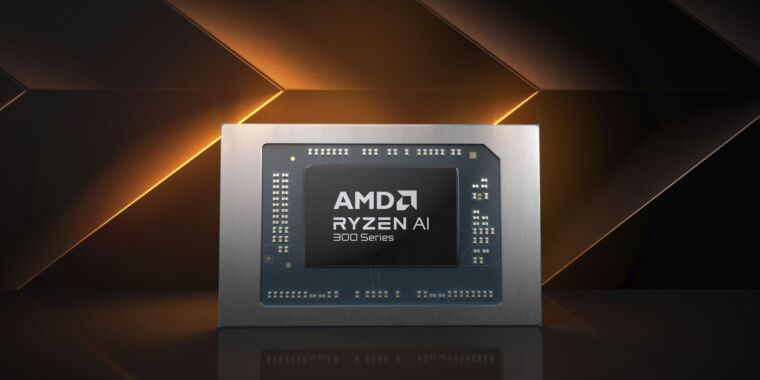Alphane Moon
- 51 Posts
- 48 Comments

 3·4 months ago
3·4 months agoFair point. I guess this was more of a casual post, so I didn’t think too much about it.
I would have preferred if they switched to new keyboard model in version 8.x by default.
I am a relatively light Linux user. Raspberry Pi headless via DietPi/Debian for NAS/Media server/torrents/PiHole and some experiments with self hosted services on major cloud services. I prefer to stick to defaults whenever possible.

 2·4 months ago
2·4 months agoTrue, I remember the first time I used nano, I was like “Ctrl + O to save, huh?”

 5·4 months ago
5·4 months agoTSMC would love such a setup, although I feel Apple will demand a measure of loyalty (and to my limited understanding Apple hates Nvidia).

 2·4 months ago
2·4 months agoI don’t mean to underestimate or playdown China’s potential. Being from the former (russia-occupied) USSR, I think both the west and global south severely underestimate and misunderstand the nature of China/Russia (and how to deal with them).
What I am saying is that there are also inherent weaknesses to their economic and political systems that are often completely ignored; typically because they tend to be more medium/long term in nature.
Hell, you can see it now with older chips at bigger physical nodes where China is now a significant portion of global production.
Genuinely curious if you have any data on this.
Will the PRC chip industry face many challenges? Of course it will. However, the PRC’s track record of going from nothing to 5nm in a few years cannot be ignored by TSMC.
This is one example of “western” misinterpretation/misunderstanding of a regime such as China. While one should not casually dismiss their achievements, one should also be critical about their PR statement regarding 5nm.
To my understanding their 5nm approach has yet to be delivered (show me a product with a 5nm chip) and its fundamentally unsuitable for mass scale production.
It is reasonable to evaluate the role of “5nm” as a PR move and not as a working product.
I would speculate even their “7nm” chips may be less competitively viable than one would think based on their use in Huawei’s smartphones. I could be wrong though, it’s difficult to find good information on this topic.

 81·4 months ago
81·4 months agoIt’s definitely just my opinion. Honestly did not mean to imply otherwise.
I would almost prefer them to just switch to the new keybindings by default in version 8.0.

 3·4 months ago
3·4 months agoAnd what if Nvidia does front a lot of cash (similar to how Apple bankrolls new nodes)?
Not saying this is happening or will happen, but it is a distinct possibility.

 1·4 months ago
1·4 months agoThe development of PRC’s chip industry is not guaranteed to go on a exponential curve.
There are inherently some disincentives to PRC’s approach to managing their chip industry, lots of money chasing limited productive projects (you can bet some opportunistic people in China are going to try and piggyback the money faucet). Essentially no-bid type contracts that are going to create a culture of stagnation (at least partially). Lack of a broad customer base (e.g. Apple essentially bankrolling new nodes at TSMC); global demand will always be way bigger and more sophisticated than China, Russia and Iran.
Then you also have technical limitations like lack of access to hardware from ASML, more limited (and less competitive) tooling and design ecosystem.

 2·4 months ago
2·4 months ago“We sent our DDoS-missiles against websites in russophobic Spain,”
Nice shitpost from the russian security goons.
I wonder if “others” under “Linux Distributions (split)” is mostly SteamOS (arch-based)?
This is more of “straw poll” as it’s limited to self-reported users of gamingonlinux.com.

 2·4 months ago
2·4 months agoInteresting that Okta seems to be involved in the alleged breaches at Snowflake as previous reported in this community.
Some more context on this: Post 1, Post 2.
Kevin Beaumont, a Mastadon cybersecurity posters, reports that a tool called rapeflake was used to harvest account credentials.

 5·4 months ago
5·4 months agoI believe this is tied to the memory bus size (which is tied to the overall architecture design).
I believe 448 bit memory bus doesn’t actually allow 32GB, I think it would have to be 56 GB.

 5·4 months ago
5·4 months agoWe’ll be lucky if it’s 2K USD.
Considering how much higher margins are for enterprise “AI” use cases, they could easily price this at $2.5 - $3K and they would do fine (if it’s too much you can pay $1999 for the 5080).

 2·4 months ago
2·4 months agoYeah, since the fabs switch from planer designs, the node naming schemes have been marketing derived.

 1·4 months ago
1·4 months agoI hope you’re right. :)

 1·4 months ago
1·4 months agoWith respect to the US regulatory/judicial actions, I find it difficult to believe that they will be sufficient to nudge the criminals towards genuine self-reflection and a desire to change their behaviour. Similarly, other criminals are likely see enforcement action as more of a “risk to be managed” as opposed to a strong incentive to re-evaluate their approach to criminal schemes.
This is of course not a US only problem, albeit there are countries were consumer rights and business criminality is less socially acceptable.
I didn’t interpret their argument as stating “the agency is wrong”. More like “we weren’t told this was wrong, we were one of the caught … so this claim should be dismissed.”
I would even go as far as saying that this is a sign of disrespect towards judicial processes.

 3·4 months ago
3·4 months agoThis is a start, but the fact that they come up with this:
Executives had urged the court to dismiss the FTC’s claims against them. They argued that the FTC “singled them out ‘for an ‘unprecedented sanction’” when the agency had “only recently started prosecuting companies for using ‘dark patterns’” under Restore Online Shoppers’ Confidence Act (ROSCA) and the FTC Act. They claimed that the FTC never alerted them to any wrongdoing before filing the lawsuit, so how could they have known they were violating the law?
Suggests that they are not being serious.
And I doubt the fine will be sufficient for them to re-evaluate their attitudes. What we need is full asset seizure (every last cent, home, car, everything) and to send them to do a decade as junior support personnel at a late stage Alzheimer’s care facility (my dad had Alzheimer, so I am not being callous for the sake of it).
They can also do 20 years in prison with no parole if they are too good for community service.

 3·4 months ago
3·4 months agoI don’t think it’s solely an issue with 60+ year olds, although I can’t speak for Korea as I don’t know anything about the country beyond general knowledge.

 13·4 months ago
13·4 months agoUntil there are proper incentives for executives (e.g. full asset seizure and mandatory multi-year community service in roles such as junior janitor, junior hospice care specialist, live-in support for late stage alzheimer’s patients) that require them to take ownership and responsibility for their actions (or lack of thereof), this will continue.
Just look at the 2017 Equifax breach in the US:
Wikipedia background:
An Equifax internal audit in 2015 showed that there was a large backlog of vulnerabilities to patch, that Equifax wasn’t following its own timescales on patching them, that IT staff did not have a comprehensive asset inventory, that Equifax didn’t consider how critical an IT asset was when prioritising patches, and that the patching process worked on an ‘Honour system’. The report set out actions to improve the process, but the time of the breach, two years later, many of them had not been completed.
Equifax press release states that CIO and CSO can now enjoy retirement:
As part of the company’s ongoing review of the cybersecurity incident announced September 7, 2017, Equifax Inc. (NYSE: EFX) today made personnel changes and released additional information regarding its preliminary findings about the incident.
The company announced that the Chief Information Officer and Chief Security Officer are retiring.
Richard Smith, the CEO under whose watch this happened, got to retire at the ripe old age of 57 and got a nice bonus of $90 M
Richard Smith, 57, is the third Equifax executive to retire under pressure following the company’s massive data breach revealed earlier this month, putting the personal information of as many as 143 million people at risk.
But the CEO is still set to collect about $72 million this year alone (including nine months’ worth of his $1,450,000 salary), plus another $17.9 million over the next few years. That’s when the rest of Smith’s stock compensation hits a few important milestones or “vests,” allowing Smith to essentially put it in his bank account. Altogether, it adds up to a total potential paycheck of more than $90.1 million, according to Fortune’s calculations based on Equifax securities filings.

 4·4 months ago
4·4 months agoI heard a theory that because it’s a relatively small industry, all the senior technical marketing execs come from the same pool, so that’s why they all have “fascinating” naming schemes.

















Nvidia definitely has a lot of skeletons in their closets with respect to anti-competitive practices.
But even beyond that, any government would be within its right to start action against their dominance in the GPU compute space (e.g. making CUDA an open, independently managed, standard that Nvidia would have to do their absolute best to comply (or Huang would have proper liability, not american style).
Same with their schemes around sanctions busting. If I was American, I would be extremely pissed off with how they are being handled with kids gloves for what is essentially treason (i.e. from my limited understanding the highest penalty in the US would be capital punishment).